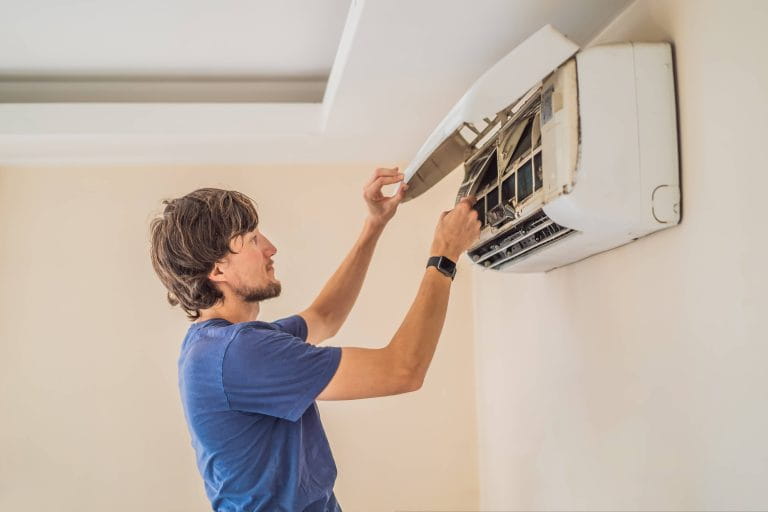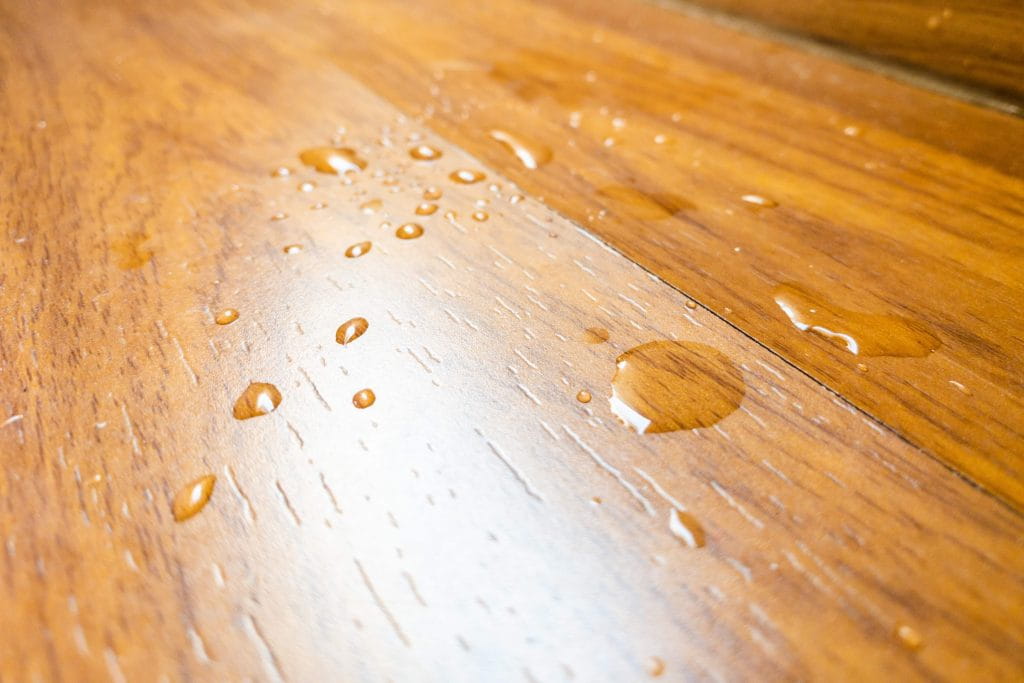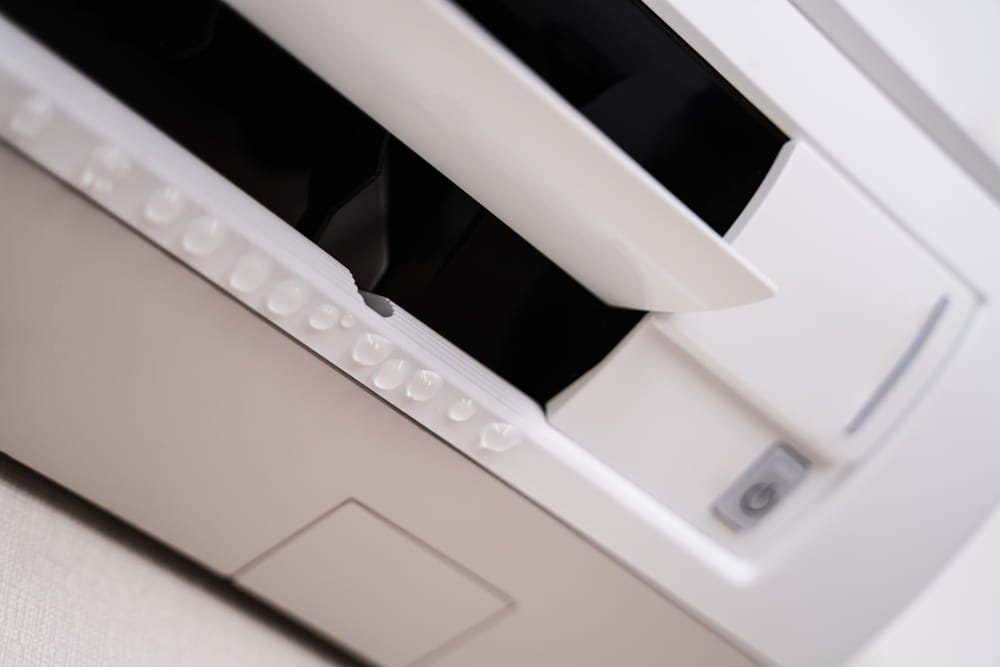From improper installation to the accumulation of debris and dust over time, there are various reasons why an air conditioner might leak water. Let’s explore the most common causes and how to address them.
Why water leaks from the air conditioner
A water leak from the air conditioner does not necessarily mean it is an irreparable situation. It could be caused by dirt and dust in some of its components or by the need to recharge the unit with refrigerant gas.
- One of the most frequent causes is a clogged condensate drain line. This is the part that channels water to the outdoor unit. When it's blocked, water leaks from the air conditioner instead of flowing outside.
- Obstructions in the drain line are often caused by dirt and dust that accumulate inside, as well as insects and other debris that settle in throughout the year. This issue usually becomes apparent after the air conditioner has been turned off for a long period.
- Water leakage can also come from the indoor unit, commonly known as the "split unit." Sometimes, ice forms inside the split unit, usually due to a lack of refrigerant gas or an electrical issue. In such cases, ice can form inside the evaporator or on the fins of the split unit.
- Another source of water leakage is related to the condensate collection tray, which gathers the condensate produced by the air conditioner. If the tray cannot drain the condensate due to accumulated dirt or improper slope, water will overflow.
This emphasizes the importance of regular maintenance of the air conditioner before using it during the summer season.
Why is my AC leaking water from the bottom?
The outdoor unit houses the air conditioner's motor. If water is leaking from this area, particularly from under the motor, the first thing to check is whether the condensate drain line is clogged.
- As mentioned earlier, if the drain line is blocked by dirt, dust, or debris, water cannot drain properly and will leak from the air conditioner. The drain line should be cleaned to remove any obstructions.
- Another potential cause could be a clogged, improperly positioned, or damaged condensate tray. When this tray cannot drain the collected water, it overflows and causes a leak.
- Some air conditioner models are equipped with a condensate pump that helps drain the water. If this pump is faulty, the water might not drain correctly and could leak from the outdoor unit.
- Another possibility is a malfunction in the refrigeration system, such as a refrigerant gas leak or an evaporator malfunction.
It is also important to note that a small amount of water leakage from the motor can occur even when the air conditioner is functioning correctly and there are no malfunctions. The air conditioner produces condensate water, which comes from the humidity extracted from the environment. This water tends to drip outside, which is not a problem unless the leakage is particularly significant.
A warning sign that there might indeed be an issue is an unusual and persistent noise coming from the unit.
Why does the AC indoor unit leak water?
Water leakage from the indoor unit, or split unit, is often caused by dirty filters, which reduce the airflow through the evaporator. As a result, the temperature on the evaporator's surface drops, leading to excessive condensation. This condensation can freeze into small ice pieces, which eventually melt and turn into water.
Additionally, the indoor unit of the air conditioner must be installed perfectly level against the wall. If it is not, the likelihood of water leakage increases.
How can I stop my air conditioner from leaking?
As we have seen, the source of the leak can be found in various parts and components. This is why it is a good idea to rely on the expertise of a specialised technician when your air conditioner is leaking water. They can resolve the issue more quickly and efficiently.
While the user can clean the filters of the split unit, which may have accumulated too much dust over time and caused ice formation, other steps require more delicate handling.
For instance, to clean the condensate collection tray, you need to remove it from the panel covering the air conditioner's outdoor unit. This involves first removing the panel and then accessing the tray, disconnecting it from the drain line. After completing this task, it is crucial to reposition the tray, ensuring it has the correct slope.
A technician can also determine whether a thorough cleaning is sufficient to fix the problem or if another type of intervention is needed due to a technical or electrical malfunction.











































